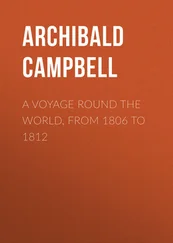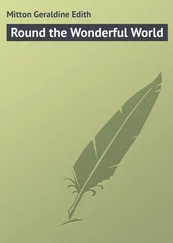George Anson - A Voyage Round the World
Здесь есть возможность читать онлайн «George Anson - A Voyage Round the World» — ознакомительный отрывок электронной книги совершенно бесплатно, а после прочтения отрывка купить полную версию. В некоторых случаях можно слушать аудио, скачать через торрент в формате fb2 и присутствует краткое содержание. ISBN: , Жанр: foreign_antique, foreign_prose, на английском языке. Описание произведения, (предисловие) а так же отзывы посетителей доступны на портале библиотеки ЛибКат.
- Название:A Voyage Round the World
- Автор:
- Жанр:
- Год:неизвестен
- ISBN:http://www.gutenberg.org/ebooks/47130
- Рейтинг книги:3 / 5. Голосов: 2
-
Избранное:Добавить в избранное
- Отзывы:
-
Ваша оценка:
- 60
- 1
- 2
- 3
- 4
- 5
A Voyage Round the World: краткое содержание, описание и аннотация
Предлагаем к чтению аннотацию, описание, краткое содержание или предисловие (зависит от того, что написал сам автор книги «A Voyage Round the World»). Если вы не нашли необходимую информацию о книге — напишите в комментариях, мы постараемся отыскать её.
A Voyage Round the World — читать онлайн ознакомительный отрывок
Ниже представлен текст книги, разбитый по страницам. Система сохранения места последней прочитанной страницы, позволяет с удобством читать онлайн бесплатно книгу «A Voyage Round the World», без необходимости каждый раз заново искать на чём Вы остановились. Поставьте закладку, и сможете в любой момент перейти на страницу, на которой закончили чтение.
Интервал:
Закладка:
The examining the bottoms of rivers and the gullies of torrents, and the washing the gold found therein from the sand and dirt with which it is always mixed, are works performed by slaves, who are principally negroes, kept in great numbers by the Portuguese for these purposes. The regulation of the duty of these slaves is singular, for they are each of them obliged to furnish their master with the eighth part of an ounce of gold per diem; and if they are either so fortunate or industrious as to collect a greater quantity, the surplus is considered as their own property, and they have the liberty of disposing of it as they think fit. So that it is said, some negroes who have accidentally fallen upon rich washing places have themselves purchased slaves, and have lived afterwards in great splendour, their original master having no other demand on them than the daily supply of the forementioned eighth, which, as the Portuguese ounce is somewhat lighter than our troy ounce, may amount to about nine shillings sterling.
The quantity of gold thus collected in the Brazils, and returned annually to Lisbon, may be in some degree estimated from the amount of the king's fifth. This hath of late been esteemed, one year with another, to be one hundred and fifty arroves of 32 lb. Portuguese weight each, which at £4 the troy ounce, makes very near £300,000 sterling, and consequently the capital, of which this is the fifth, is about a million and a half sterling. It is obvious that the annual return of gold to Lisbon cannot be less than this, though it be difficult to determine how much it exceeds it; perhaps we may not be very much mistaken in our conjecture, if we suppose the gold exchanged for silver with the Spaniards at Buenos Ayres, and what is brought privily to Europe and escapes the duty, amounts to near half a million more, which will make the whole annual produce of the Brazilian gold near two millions sterling, a prodigious sum to be found in a country which a few years since was not known to furnish a single grain.
I have already mentioned that besides gold this country does likewise produce diamonds. The discovery of these valuable stones is much more recent than that of gold, it being as yet scarce 20 years since the first were brought to Europe. They are found in the same manner as the gold, in the gullies of torrents and beds of rivers, but only in particular places, and not so universally spread through the country. They were often found in washing the gold before they were known to be diamonds, and were consequently thrown away with the sand and gravel separated from it; and it is very well remembered that numbers of very large stones, which would have made the fortunes of the possessors, have passed unregarded through the hands of those who now with impatience support the mortifying reflection. However, about twenty years since a person acquainted with the appearance of rough diamonds conceived that these pebbles, as they were then esteemed, were of the same kind: but it is said that there was a considerable interval between the first starting of this opinion and the confirmation of it by proper trials and examination, it proving difficult to persuade the inhabitants that what they had been long accustomed to despise could be of the importance represented by this discovery, and I have been informed that in this interval a governor of one of their places procured a good number of these stones, which he pretended to make use of at cards to mark with instead of counters. But it was at last confirmed by skilful jewellers in Europe, consulted on this occasion, that the stones thus found in Brazil were truly diamonds, many of which were not inferior, either in lustre, or any other quality, to those of the East Indies. On this determination, the Portuguese, in the neighbourhood of those places where they had first been observed, set themselves to search for them with great assiduity. And they were not without great hopes of discovering considerable masses of them, as they found large rocks of chrystal in many of the mountains, from whence the streams came which washed down the diamonds.
But it was soon represented to the King of Portugal that if such plenty of diamonds should be met with, as their sanguine conjectures seemed to indicate, this would so debase their value and diminish their estimation, that besides ruining all the Europeans who had any quantity of Indian diamonds in their possession, it would render the discovery itself of no importance, and would prevent his majesty from receiving any advantages from it, and on these considerations his majesty has thought proper to restrain the general search of diamonds, and has erected a diamond company for that purpose, with an exclusive charter. This company, in consideration of a sum paid to the king, is vested with the property of all diamonds found in Brazil: but to hinder their collecting too large quantities, and thereby reducing their value, they are prohibited from employing above eight hundred slaves in searching after them. And to prevent any of his other subjects from acting the same part, and likewise to secure the company from being defrauded by the interfering of interlopers in their trade and property, he has depopulated a large town and a considerable district round it, and has obliged the inhabitants, who are said to amount to six thousand, to remove to another part of the country; for this town being in the neighbourhood of the diamonds, it was thought impossible to prevent such a number of people who were on the spot from frequently smuggling.
In consequence of these important discoveries in Brazil, new laws, new governments, and new regulations have been established in many parts of the country. For not long since a considerable tract, possessed by a set of inhabitants who from their principal settlement were called Paulists, was almost independent of the crown of Portugal, to which it scarcely acknowledged more than a nominal allegiance. These Paulists are said to be descendants of those Portuguese who retired from the northern part of Brazil when it was invaded and possessed by the Dutch. As from the confusion of the times they were long neglected by their superiors, and were obliged to provide for their own security and defence, the necessity of their affairs produced a kind of government amongst them which they found sufficient for the confined manner of life to which they were inured. And being thus habituated to their own regulations, they at length grew fond of their independency: so that rejecting and despising the mandates of the court of Lisbon, they were often engaged in a state of downright rebellion, and the mountains surrounding their country, and the difficulty of clearing the few passages that open into it, generally put it in their power to make their own terms before they submitted. But as gold was found to abound in this country of the Paulists, the present King of Portugal (during whose reign almost the whole discoveries I have mentioned were begun and compleated) thought it incumbent on him to reduce this province, which now became of great consequence, to the same dependency and obedience with the rest of the country, which, I am told, he has at last, though with great difficulty, happily effected. And the same motives which induced his Majesty to undertake the reduction of the Paulists has also occasioned the changes I have mentioned to have taken place at the island of St. Catherine's. For the governor of Rio Grande, of whom I have already spoken, assured us that in the neighbourhood of this island there were considerable rivers which were found to be extremely rich, and that this was the reason that a garrison, a military governor, and a new colony was settled there. And as the harbour at this island is by much the securest and the most capacious of any on the coast, it is not improbable, if the riches of the neighbourhood answer their expectation, but it may become in time the principal settlement in Brazil, and the most considerable port in all South America.
Читать дальшеИнтервал:
Закладка:
Похожие книги на «A Voyage Round the World»
Представляем Вашему вниманию похожие книги на «A Voyage Round the World» списком для выбора. Мы отобрали схожую по названию и смыслу литературу в надежде предоставить читателям больше вариантов отыскать новые, интересные, ещё непрочитанные произведения.
Обсуждение, отзывы о книге «A Voyage Round the World» и просто собственные мнения читателей. Оставьте ваши комментарии, напишите, что Вы думаете о произведении, его смысле или главных героях. Укажите что конкретно понравилось, а что нет, и почему Вы так считаете.












